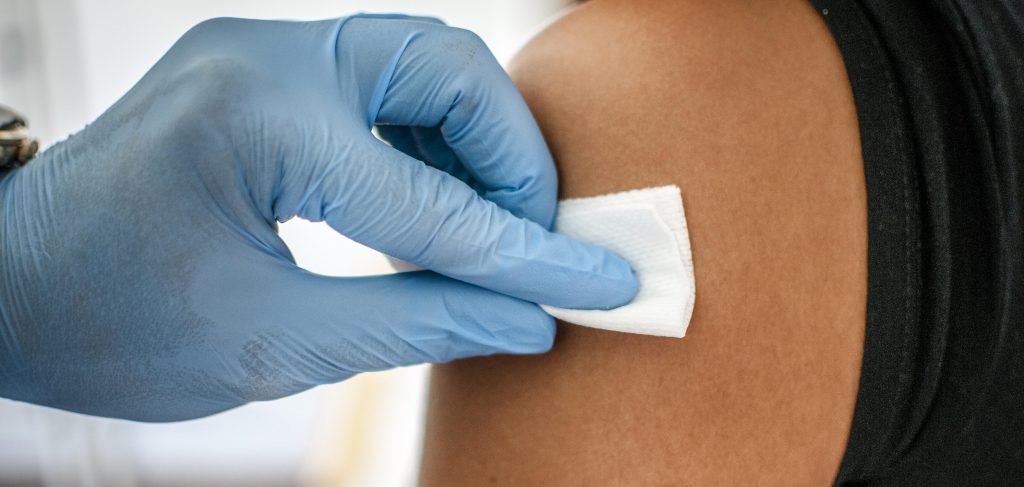Each year, October marks the official beginning of flu season. However, 2021 is unlike any other year in the past — we are also managing an urgent need for people to receive the COVID-19 vaccine or booster. It’s easy to get overwhelmed when figuring out where, when and how to get vaccinated. But our experts are here to help explain why it is critically important to get both vaccines this fall.
Can I Get My COVID-19 Vaccine and Flu Shot at the Same Time?
Each year, the Centers for Disease Control and Prevention (CDC) recommends that everyone six months old and older receives a flu vaccine. As far as timing, the CDC suggests ideally getting your flu vaccine by the end of October to receive maximum protection throughout the flu season. Pregnant women, children and people over 65 are included in this recommendation.
This year, there are lots of questions about how the flu vaccine and COVID-19 vaccine work together. One of the most frequent questions right now: can I get my COVID-19 vaccine or booster at the same time as my flu vaccine?
“We can do them together,” says Robert Tracy, MD, who specializes in family medicine at St. Elizabeth Physicians.
Dr. Tracy explains that initial information showed the COVID vaccine was given as a standalone, but further research confirms that it’s safe to receive vaccines like COVID-19 and the flu at the same time.
“The side effects are sometimes similar,” says Dr. Tracy. “Achy arms and fatigue — so if you’re worried about these potential side effects, you can wait two weeks between the shots.”
Will My Flu Shot from Last Year Protect Me?
The flu vaccine helps your body create defense antibodies for about two weeks after you get the shot. These antibodies provide protection when you encounter the viruses throughout the flu season, assisting your body in mounting an immune response to keep you from getting sick.
According to the CDC, the flu vaccine is a quadrivalent — meaning it is developed to protect you against four different flu viruses. Each year, these flu viruses change and the vaccine is updated accordingly, so a previous year’s vaccine will no longer provide protection.
Do I Need a Flu Vaccine If I’m Fully Vaccinated Against COVID-19?
The short answer: yes! The flu and COVID-19 are very different viruses, but they have one thing in common: the vaccine can help keep you or your loved ones from getting critically ill from either virus. It also can help to keep you out of the hospital.
“The idea is that if more people get vaccinated, it’s going to reduce our burden on the healthcare system, which is already overwhelmed,” says Dr. Tracy. “If we start getting a big flu rush on top of the COVID cases, then we are going to be in trouble.”
This year, it’s more important than ever to head into the colder months fully vaccinated against COVID-19 and the flu. In addition to keeping yourself healthy, you’re protecting the more vulnerable people in your life, such as your children or elderly parents.
For more information or to schedule a COVID-19 or flu vaccine, please call 877-424-5750 or schedule an appointment through MyChart or visit Access To Care.

